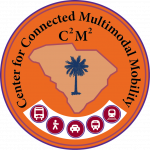C2M2 invites you to join us in welcoming Lily Elefteriadou, Ph.D., Director, University of Florida Transportation Institute, as a part of our C2M2 Distinguished Speaker Series. Dr. Elefteriadou is the Barbara Goldsby Professor of Civil Engineering at the University of Florida. Her research focus is traffic operations, traffic flow theory, and simulation. She is the principal investigator of the US DOT-funded Regional University Transportation Center for Region 4 (Southeast Transportation Research Innovation Development and Education, or STRIDE). STRIDE involves nine other universities in the southeast and is funded with approximately $14 Million from the US DOT plus an equal amount of cost sharing from non-federal sources (period of performance is January 2016 to January 2021). STRIDE focuses on congestion mitigation. She has served as the principal investigator for several other federal and state projects, funded by the National Cooperative Highway Research Program (NCHRP), the National Science Foundation (NSF), the Federal Highway Administration, PennDOT, and FDOT. She has authored or co-authored nearly two hundred publications and reports related to traffic operational quality and highway design, as well as a textbook titled “Introduction to Traffic Flow Theory”. Dr. Elefteriadou serves on the Editorial Board of the Transportation Research: Part B, and is the Past Chair of the Transportation Research Board’s Highway Capacity and Quality of Service Committee. She is also a Past Chair of the Executive Board of the Council of University Transportation Centers and was the 2014-2015 President of the ARTBA Research and Education Council.
Seminar Title
Optimizing Traffic Signal Control with Connected and Autonomous Vehicles in the Traffic Stream
Seminar Abstract The presentation will discuss on-going work to develop optimization algorithms, simulation tools, and sensor capabilities for enhancing traffic signal control operations when the traffic stream consists of connected vehicles, autonomous vehicles, and conventional vehicles. The presentation will discuss algorithms and simulation results for a fully autonomous traffic stream as well as for traffic with conventional and autonomous/connected vehicles. Early versions of the optimization were deployed and tested at the Traffic Engineering and Research Laboratory (TERL), a Florida Department of Transportation (FDOT) closed-course facility. The results from the field test confirmed the feasibility of the concept, and also identified critical issues that have to be addressed for successful field deployment. The algorithm is being enhanced to consider pedestrians, bicycles, and scooters, and it is being rigorously tested for field deployment. A signalized intersection on the UF campus has been instrumented to run the algorithm as part of the I-STREET real-world testbed in Gainesville, Florida. The research, led by UF, is funded by the National Science Foundation and FDOT and involves two industry partners: ISS and Econolite.
